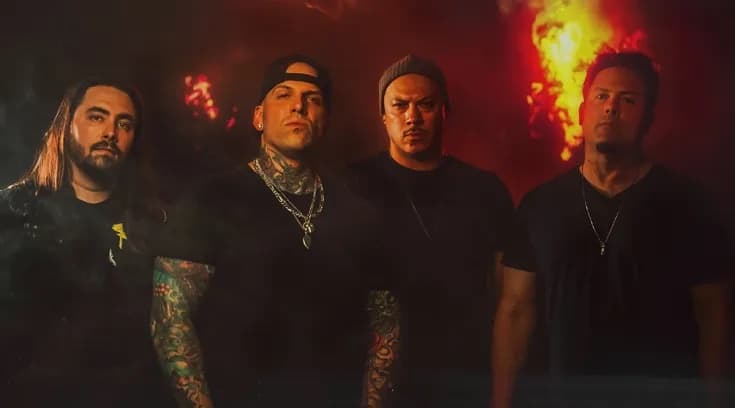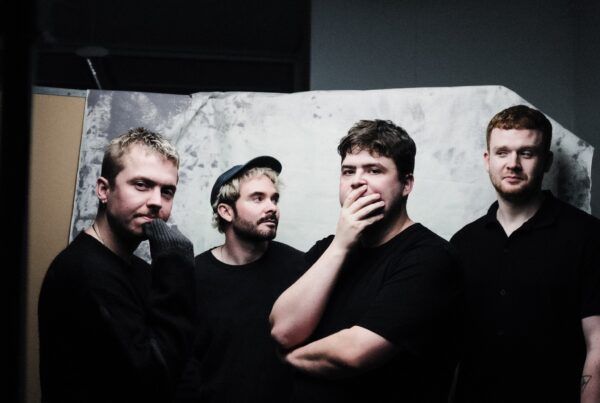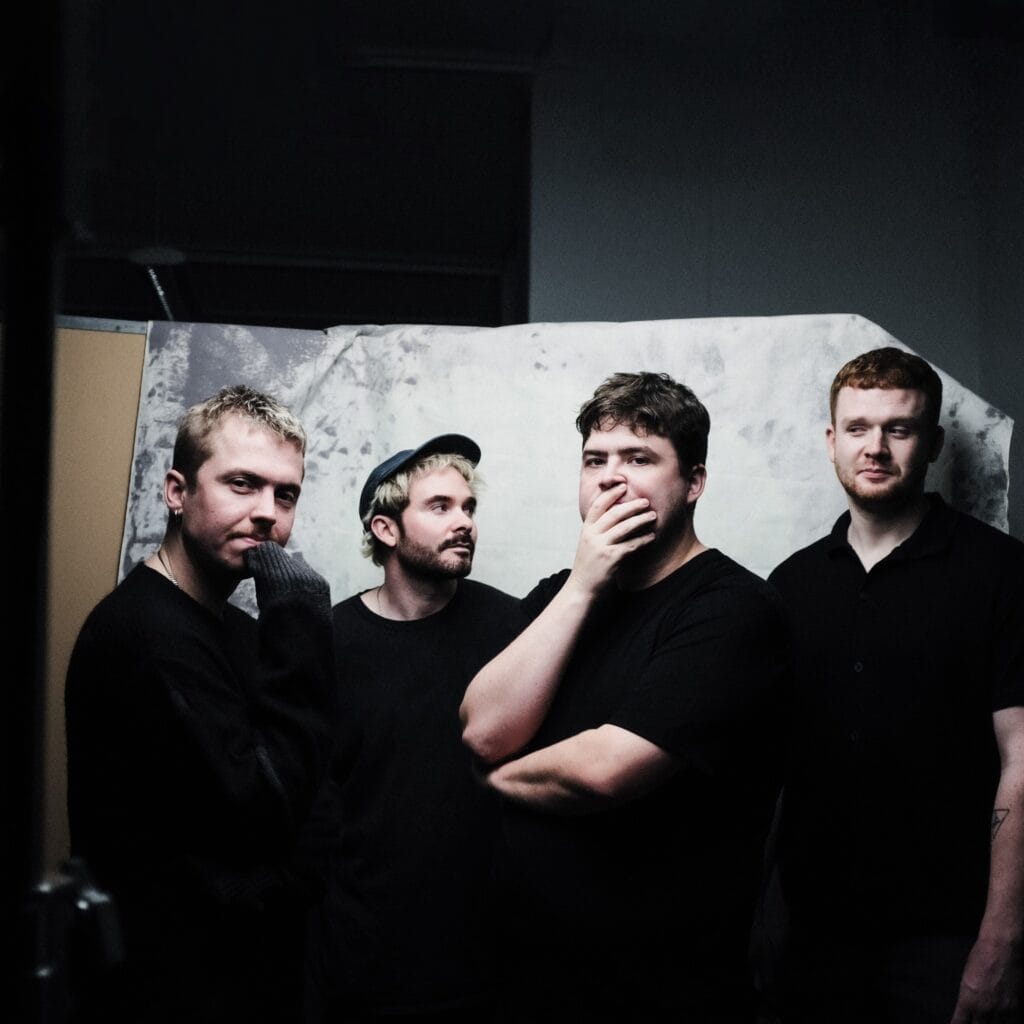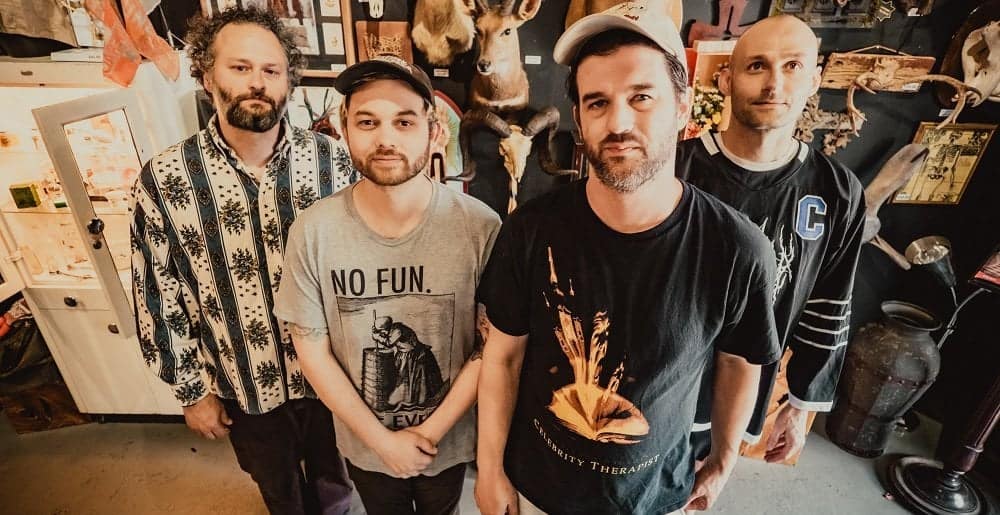Doc Coyle goes in-depth on his thoughts about Bad Wolves’ forthcoming record, ‘Die About It’ and discusses how he feels the band fits into the modern alternative metal landscape.

“The alien said ‘no peace’” laughs Doc Coyle, as we mention the turbulent few years Bad Wolves has experienced. After the controversial departure of their previous vocalist, Tommy Vext, in early 2021, the band has struggled to move on from the situation, largely due to Vext’s continual public statements and attempts to sue the band and its management. Coyle has referred to the album as a “fuck you” to anyone who doubted Bad Wolves, as they continue to strive forward to create new material, and gain momentum. “I think it feels like a war in a motivating way,” he explains, referring to his earlier Independence Day quote, “We had our ups, we had our downs,” he continues, “Fundamentally, you can’t take anything for granted.” We speak at length about the issues in the industry, and how difficult it can be to break through, and yet more than that, how difficult it is to maintain the momentum when it does begin to grow. “You have to remain vigilant,” Coyle believes.
Speaking of the Vext controversy, Coyle outlines Bad Wolves’ unique angle, in that they’ve received a “lot of hate” but they’re not at a comfortable enough level success-wise to brush it off. “We’re not, you know, Disturbed or Korn success where like, you have a bunch of hater and that’s fine because you’ve got a mansion at home,” he smiles. “You look at the level of our band and the amount of hate we get and it’s a different kind of ratio.” With the new album, Die About It, Coyle says the band took the opportunity to confront that scepticism. “We’re trying to strike a balance, especially with interviews, where we can be vulnerable and talk about our fears, our insecurities, but from a standpoint of strength,” he elaborates. There’s a feedback infrastructure to writing, recording, and releasing music, as Coyle explains. “You put out something and you’re in the comment section or there’s a certain discourse on the YouTube page, and we’re always struggling,” he says, “Is that real? There’s 20 people hating you, do they just represent 20 people? Or are they actually the manifestation of a much bigger thing?” It’s truly impossible to tell in the grand scheme of things, but it triggers a fight or flight response in artists such as Cyle. “You’re fighting to survive and each record has to be successful, it has to get bigger, we have to do bigger tours,” he says.
The recording process of Die About It sounds like an amalgamation of the most intricately creative brains you could come across. Despite having previously announced that he is no longer touring with Bad Wolves, guitarist Max Karon was heavily involved in the writing process, as well as new permanent vocalist Daniel ‘DL’ Laskiewicz being present for the first time for the entire recording session. “There was a lot of creative thrust from all sides and I had an odd experience,” Coyle tells us, “I was just trying to figure out how to fit in. You have all these heavyweights and all this input, you can’t have five leaders. You need to have some kind of hierarchy to things,” he explains.
Coyle isn’t sure whether he’s seeing an uptake in Bad Wolves fans though, despite the scene thriving as a whole. “We’ve been fighting a narrative for the last 20, 30 years that rock is dead. Of course, it’s never dead but I think it’s in a real upswing right now,” he explains, “I could name 15 artists right now that are just climbing.” He’s talking about the likes of Slaughter to Prevail and Dying Fetus, both of whom are selling out all of their booked shows. Coyle puts it down to the culture, the emo revival, and the nostalgia of enjoying music in a post-pandemic world. “It’s the young kids on TikTok listening to Bad Omens and Sleep Token and wearing makeup,” he says, “It’s about community, it’s about fashion, it’s about lifestyle, and it’s really working,” he explains. In terms of implicating Bad Wolves in that upward trend, he believes that to succeed and truly take advantage of it you need to stay pushing hard, always. “We all come from other bands from the metal scene, I was in God Forbid, John was in Devil Driver, DL was in The Acacia Strain,” he says, “I feel like we have a great product, but I don’t know if we’ve been as successful at marketing that product to as many people.” It’s not for a lack of trying though, as Coyle himself says that he’s only approaching creativity via Bad Wolves with the throttle all the way in. “I just want to win, you know?” he says, “I have to give 1000%. You only get one chance to release an album and do a touring cycle for a record.” With that one approach he tries to be positive around everyone he interacts with and be the “face” of the band in his number of engagements, press opportunities, and interacting with the fans, but he knows this never guarantees results. “You can control what you do but you can’t control whether people like your music,” he explains, “You can work 24 hours a day and try to will it to happen, but you can’t control the outcome. You have to go, I’m gonna work as hard as I can but then be okay mentally and emotionally if it doesn’t do what I wanted it to do, because I can’t force it to happen.” Coyle continues to elaborate, “Failure is all part of it, and it’s okay.”
In their relentless approach as a band, the highest highs Bad Wolves have seen so far was with their tribute to The Cranberries’ Dolores O’Rioridan, who was originally supposed to reprise her iconic vocals alongside the band for their version of Zombie, but sadly passed away on the very same day she was due to meet up with them. The tribute has an incredible 515million views on YouTube alone, and has become a staple in the industry of how to adapt a classic track to a modern metal sound. “We’re always in the shadow of a phenomenon like Zombie,” Coyle says, “It overshadows the band in the sense that its popularity, if you look at the numbers, it’s crazy. People are still doing reaction videos to Zombie as though it came out yesterday, but people aren’t checking out the new Bad Wolves, it’s almost like another band made it. It’s very peculiar,” he explains. “It’s a blessing and a curse.”
Watch the interview:
Listen to the interview:
Hear the album:






